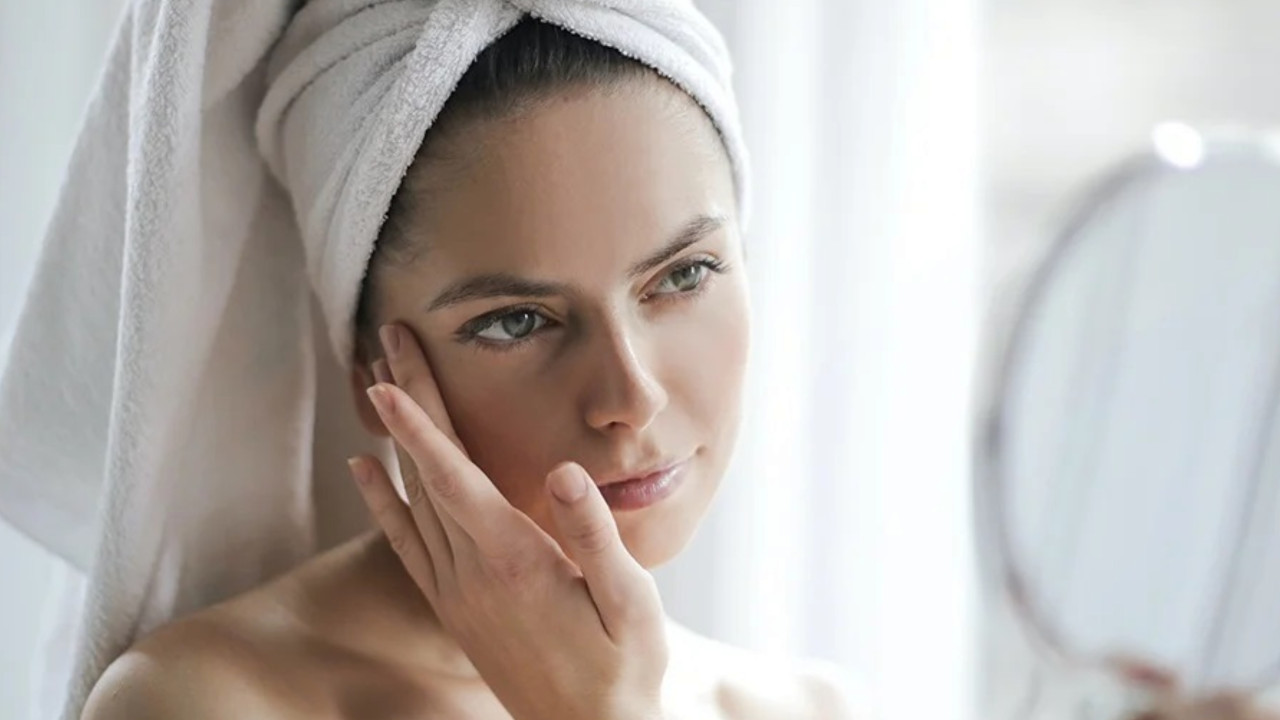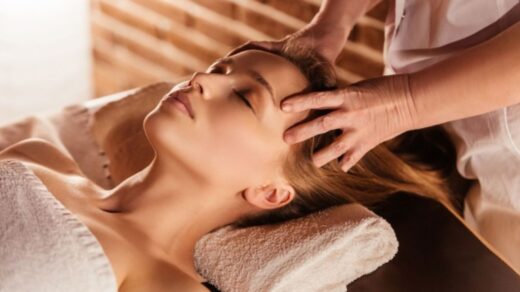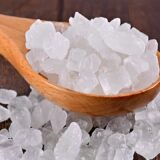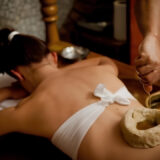Top 10 Natural Anti-Aging Herbs to Keep You Looking Younger
In the pursuit of youthful radiance and overall wellness, many people are turning to nature for answers. Among the most celebrated natural remedies are anti-aging herbs—renowned for their ability to support longevity, enhance vitality, and slow the visible and internal signs of aging. Rich in antioxidants, vitamins, and essential minerals, these powerful herbs help fight oxidative stress, reduce inflammation, and promote overall health from the inside out. Rooted in centuries of traditional medicine, they continue to gain recognition in modern wellness practices for their rejuvenating properties.
Rich in antioxidants, vitamins, and essential minerals, these powerful herbs help fight oxidative stress, reduce inflammation, and promote overall health from the inside out. Rooted in centuries of traditional medicine, they continue to gain recognition in modern wellness practices for their rejuvenating properties.
As we age, our bodies inevitably change—but that doesn’t mean we can’t age gracefully. By incorporating these time-tested herbs into your daily routine, you can nurture your body, support your well-being, and maintain a youthful glow naturally.
Why is Your Skin Aging Faster Than You Are?
The appearance of your skin can be influenced by a variety of factors, some of which accelerate the aging process more than others. Here are the key reasons why your skin might age faster than your chronological age:
1. Cold Weather and Its Effects on Skin Aging
Cold weather, especially in winter, can strip the skin of its natural moisture, causing it to become dry and vulnerable to aging.
- Dry Air and Dehydration: Cold air tends to have low humidity, which draws moisture away from the skin. This dehydration makes the skin more prone to fine lines and wrinkles.
- Reduced Circulation: Cold weather can also constrict blood vessels, leading to reduced circulation to the skin. This reduces the oxygen and nutrients the skin needs to stay youthful and healthy.
- Loss of Skin Elasticity: Prolonged exposure to cold and harsh winds can damage the collagen and elastin in the skin, leading to a sagging appearance.
Tip: During the colder months, keep your skin moisturized with thick creams, and use a humidifier indoors to maintain skin hydration.
2. Sun Exposure and Its Impact on Skin Aging
Excessive sun exposure is a leading cause of premature skin aging, known as photoaging, and it can lead to long-term damage.
- UV Radiation Breakdown: Ultraviolet (UV) rays break down the collagen and elastin fibers in the skin, leading to the formation of wrinkles, sagging, and fine lines.
- Hyperpigmentation and Age Spots: Long-term exposure to UV rays can also result in age spots, sunspots, and uneven skin tone.
- DNA Damage: UV radiation can cause DNA damage to skin cells, which accelerates aging and increases the risk of skin cancers.
Tip: Always wear sunscreen with SPF 30 or higher, and protect your skin with hats, sunglasses, and clothing to prevent sun damage.
3. Smoking and Its Harmful Effects on Skin
Smoking not only affects your health but also has a profound negative impact on your skin’s appearance.
- Reduced Blood Flow: Smoking constricts blood vessels, limiting the oxygen and nutrients delivered to the skin. This causes the skin to appear dull, dry, and less elastic.
- Breakdown of Collagen: The toxins in cigarette smoke damage collagen and elastin fibers, which are essential for maintaining youthful skin.
- Premature Wrinkles: Smoking causes facial muscles to contract repeatedly, leading to the formation of wrinkles, particularly around the mouth and eyes.
Tip: Quitting smoking improves circulation, enhances skin health, and reduces the appearance of wrinkles.
4. Stress and Its Role in Accelerating Skin Aging
High stress levels can take a toll on your skin in both physical and emotional ways.
- Cortisol Production: Chronic stress leads to the overproduction of cortisol, the stress hormone, which can damage collagen and accelerate aging.
- Skin Inflammation: Stress can lead to increased inflammation in the skin, resulting in conditions like acne, eczema, and other skin irritations that age the skin prematurely.
- Disrupted Sleep Patterns: Stress also disrupts sleep, which is vital for the body’s natural repair and rejuvenation process, leading to signs of aging like dark circles and puffiness under the eyes.
Tip: Incorporate stress management techniques such as yoga, meditation, or deep breathing exercises into your daily routine to help protect your skin.
5. Alcohol and Its Dehydrating Effect on Skin
While alcohol might offer a temporary feeling of relaxation, it has several detrimental effects on your skin.
- Dehydration: Alcohol is a diuretic, meaning it increases the rate at which your body loses water. Dehydrated skin is more prone to sagging, fine lines, and dryness.
- Impaired Nutrient Absorption: Excessive alcohol consumption impairs the absorption of vital nutrients, including vitamin A and zinc, which are essential for healthy skin.
- Inflammation and Redness: Alcohol can cause inflammation in the skin, resulting in redness, puffiness, and an uneven complexion.
Tip: Drink water alongside alcohol to maintain hydration and reduce the risk of skin dehydration. Consider limiting alcohol intake for healthier skin.
Tips to Slow Down Skin Aging and Maintain Youthful Skin
While environmental and lifestyle factors contribute to premature aging, adopting healthy habits can make a significant difference. Here are some Ayurvedic-inspired and general tips to help keep your skin youthful:
- Stay Hydrated: Drink plenty of water throughout the day to maintain skin moisture and flush out toxins.
- Follow a Nourishing Skincare Routine: Use natural moisturizers, like aloe vera or coconut oil, and gentle cleansers to keep the skin hydrated without stripping it of essential oils.
- Practice Self-Care: Regularly engage in relaxation techniques, including meditation, yoga, or simple breathing exercises, to reduce stress and promote healthy circulation to the skin.
- Eat a Balanced, Antioxidant-Rich Diet: Include foods high in antioxidants, like berries, leafy greens, and healthy fats from nuts and avocados, to help combat oxidative stress and support skin repair.
- Get Enough Sleep: Aim for 7-8 hours of restorative sleep to allow your skin to repair and regenerate overnight.
Top 10 Indian Herbs for Skin Tightening
1. Aloe Vera
Aloe vera is a succulent plant known for its healing properties, commonly used to treat skin irritations and promote hydration. It’s widely used in skincare for its ability to rejuvenate and tighten skin.
- Properties: Anti-inflammatory, hydrating, antioxidant-rich.
- Benefits: Aloe vera boosts collagen production, helping to tighten and firm the skin. It soothes irritation and reduces the appearance of fine lines and wrinkles, leaving your skin smooth and youthful.
2. Neem
Neem, also known as the “Indian Lilac,” has been used for centuries in Ayurvedic medicine for its healing and purifying qualities. It helps cleanse the skin from within while promoting skin regeneration.
- Properties: Antibacterial, anti-inflammatory, detoxifying.
- Benefits: Neem promotes circulation, improves skin texture, and tightens the skin. Its antibacterial properties help keep the skin clear of acne and blemishes while fighting free radicals that cause aging.
3. Turmeric
Turmeric, often referred to as “the golden spice,” has been a staple in traditional Indian skincare for centuries. It has both healing and anti-aging properties that enhance the skin’s health.
- Properties: Antioxidant, anti-inflammatory, antimicrobial.
- Benefits: Turmeric encourages collagen production, which helps tighten and firm the skin. It also brightens the complexion, reduces wrinkles, and combats the effects of aging caused by free radicals.
4. Brahmi (Gotu Kola)
Brahmi, or Gotu Kola, is an herb widely used in Ayurvedic practices for its ability to rejuvenate the skin and promote mental clarity. It is renowned for its potent anti-aging and healing effects.
- Properties: Antioxidant, anti-inflammatory, collagen-boosting.
- Benefits: Brahmi improves blood circulation and collagen production, which firms and tightens the skin. It also promotes the healing of skin cells, enhancing overall skin elasticity and texture.
5. Ashwagandha
Known as the “Indian ginseng,” Ashwagandha is a powerful adaptogen that helps the body cope with stress. It’s also renowned for its rejuvenating properties, making it a key ingredient in anti-aging skincare.
- Properties: Adaptogenic, anti-inflammatory, antioxidant.
- Benefits: Ashwagandha helps reduce stress-induced damage to skin, preventing the breakdown of collagen. It promotes cell regeneration, tightens the skin, and reduces fine lines for a youthful, firm complexion.
6. Saffron
Saffron, a luxurious spice, has been used for centuries in both cooking and skincare. Its unique properties help brighten skin tone and reduce signs of aging.
- Properties: Antioxidant, anti-inflammatory, skin-brightening.
- Benefits: Saffron enhances collagen production, helping to tighten the skin and reduce wrinkles. Its antioxidant properties fight oxidative stress, leaving the skin smooth, radiant, and youthful.
7. Fenugreek (Methi)
Fenugreek is an aromatic herb commonly found in Indian kitchens and known for its ability to improve skin health. It’s rich in vitamins and minerals that help nourish the skin.
- Properties: Rich in vitamins A, C, K, and antioxidants.
- Benefits: Fenugreek tightens and tones the skin by improving elasticity and fighting free radical damage. It helps reduce the appearance of wrinkles and fine lines while keeping the skin smooth and hydrated.
8. Tulsi (Holy Basil)
Tulsi, or Holy Basil, is considered a sacred herb in India, revered for its spiritual and medicinal qualities. It is widely used in skincare for its potent anti-aging and antibacterial effects.
- Properties: Anti-inflammatory, antimicrobial, antioxidant-rich.
- Benefits: Tulsi stimulates collagen production, helping to reduce wrinkles and tighten the skin. It also has anti-aging properties that help protect against environmental damage, keeping the skin firm and healthy.
9. Sandalwood
Sandalwood, with its soothing fragrance, has been used in Ayurvedic skincare for thousands of years. It helps calm the skin while providing astringent properties for tightening and toning.
- Properties: Astringent, antiseptic, calming.
- Benefits: Sandalwood tightens the skin and reduces the appearance of fine lines. Its soothing and nourishing properties help improve skin texture, leaving the skin smooth, toned, and youthful.
10. Moringa
Moringa, also known as the “Miracle Tree,” is rich in vitamins, antioxidants, and essential fatty acids. It’s known for its ability to rejuvenate and tighten the skin, promoting a youthful glow.
- Properties: Antioxidant, anti-inflammatory, vitamin C-rich.
- Benefits: Moringa boosts collagen production, improving skin elasticity and reducing sagging. Its high vitamin C content nourishes the skin, promoting a firm, radiant complexion.
These Indian herbs offer powerful natural benefits for skin tightening and anti-aging. Whether used as oils, masks, or in daily skincare routines, they can help rejuvenate, firm, and nourish your skin
DIY Recipe – How to Use Amla for Anti-aging
Amla, also known as Indian gooseberry, has been revered in Ayurvedic medicine for its numerous health benefits, including its potential to combat the signs of aging. Here are some ways to use amla for anti-aging, along with a DIY recipe:
1. Amla Juice
Amla is rich in antioxidants and vitamin C, both of which are beneficial for reducing the signs of aging and promoting overall skin health. To make amla juice, follow these steps:
- Take fresh amla fruits and wash them thoroughly.
- Remove the seeds and chop the amla into smaller pieces.
- Blend the chopped amla with a little water in a blender or juicer.
- Strain the mixture to extract the juice.
- Drink this amla juice daily to benefit from its anti-aging properties.
2. Amla Face Mask
Amla can be used topically as a face mask to reduce fine lines and wrinkles while brightening the skin. Here’s how to make an Amla face mask:
- Mix 1 tablespoon of amla powder with 1 tablespoon of honey and 1 tablespoon of plain yogurt to form a paste.
- Apply the Amla face mask evenly to your face.
- Leave it on for 15-20 minutes.
- Rinse off the mask with warm water.
- This mask can be used once or twice a week to improve skin texture and combat aging signs.
3. Amla Hair Mask
Amla is not only beneficial for the skin but also for promoting healthy hair growth and preventing premature graying. To create an amla hair mask:
- Mix 1 tablespoon of amla powder with 2 tablespoons of coconut oil to form a paste.
- Apply the mixture to your hair and scalp, massaging it gently.
- Leave the mask on for at least 30 minutes to nourish your hair.
- Afterward, wash your hair with a mild shampoo.
- This hair mask can be used regularly to strengthen and rejuvenate your hair.
Amla is considered a safe and effective natural remedy for anti-aging and overall health. However, it’s always a good practice to consult with a healthcare professional.
Especially if you have underlying health conditions or are taking medications, before incorporating amla into your wellness routine.
How to Use Herbs for Anti-Aging Skincare
Using herbs for anti-aging is a holistic approach to maintaining youthful, glowing skin while also promoting overall well-being. Many herbs possess powerful antioxidants, anti-inflammatory properties, and essential nutrients that support skin rejuvenation, boost collagen production, and protect against environmental damage. Below are several effective ways to incorporate herbs into your anti-aging skincare routine:
1. Herbal Teas for Anti-Aging
Herbal teas are an easy and delicious way to harness the benefits of herbs for skin health. Rich in antioxidants, these teas can help combat oxidative stress, a major contributor to aging.
- Green Tea: Known for its high levels of antioxidants, particularly catechins, which protect the skin from UV damage, reduce inflammation, and promote collagen synthesis.
- Rooibos Tea: This caffeine-free tea is packed with antioxidants like aspalathin, which help fight oxidative damage, reduce wrinkles, and promote skin hydration.
- Hibiscus Tea: High in vitamin C, hibiscus helps brighten the skin, stimulate collagen production, and prevent the formation of fine lines.
- Chamomile Tea: Renowned for its calming properties, chamomile is also rich in antioxidants that protect the skin from inflammation and environmental stressors.
Tip: Drink 1-2 cups of herbal tea daily to hydrate your skin from within, while reaping the antioxidant benefits for youthful, glowing skin.
2. Herbal Face Masks for Skin Rejuvenation
Herbal face masks are an excellent way to directly apply the healing properties of herbs to your skin. These masks can deeply nourish, hydrate, and repair skin cells, making them an effective anti-aging treatment.
- Amla (Indian Gooseberry): Rich in vitamin C and antioxidants, amla helps brighten the skin, even out complexion, and promote collagen production.
- Turmeric: Known for its anti-inflammatory and antioxidant properties, turmeric helps brighten dark spots, reduce wrinkles, and even skin tone.
- Rose: Rose petals and rose water have hydrating and soothing effects, promoting skin elasticity and reducing the appearance of fine lines.
- Lavender: Lavender contains antioxidants that protect skin cells from free radicals and reduce the appearance of fine lines and wrinkles.
DIY Herbal Face Mask Recipe: Combine 1 teaspoon of turmeric powder, 1 tablespoon of honey, and 1 tablespoon of yogurt for an anti-aging mask. Apply the mask to your face for 15-20 minutes and rinse off with lukewarm water.
3. Herbal-Infused Oils for Moisturizing and Nourishing Skin
Herbal-infused oils are a wonderful way to nourish your skin while reaping the anti-aging benefits of herbs. These oils can help reduce wrinkles, promote skin elasticity, and keep your skin moisturized.
- Rosemary Oil: Known for its antioxidant and anti-inflammatory properties, rosemary oil helps improve blood circulation, reduce puffiness, and stimulate collagen production.
- Lavender Oil: Lavender oil is gentle on the skin and promotes relaxation while reducing the appearance of wrinkles and fine lines.
- Calendula Oil: Calendula has anti-inflammatory and healing properties that help improve skin texture and tone, while also supporting skin regeneration.
Tip: Create your own herbal-infused oil by placing a few sprigs of rosemary, lavender, or calendula in a carrier oil (like jojoba or sweet almond oil) and letting it sit in a warm place for a week. Use a few drops of the oil to massage into your skin daily.
4. Herbal Supplements for Internal Health and Anti-Aging Benefits
In addition to topical applications, herbal supplements can support overall health and reduce the visible signs of aging. These herbs work internally to enhance vitality, reduce stress, and improve skin health.
- Ginseng: An adaptogen known for its ability to boost energy and combat fatigue, ginseng may also help reduce the appearance of fine lines and wrinkles by improving circulation and oxygen flow to the skin.
- Ashwagandha: This powerful adaptogen helps manage stress, which is a significant contributor to premature aging. Ashwagandha supports overall well-being, promotes skin elasticity, and helps combat oxidative damage.
- Ginkgo Biloba: Known for its antioxidant and anti-inflammatory properties, ginkgo biloba supports blood circulation, which aids in the delivery of nutrients and oxygen to the skin, promoting a youthful appearance.
Tip: Consult with a healthcare professional to determine the right dosage of these supplements, and consider incorporating them into your daily routine for enhanced anti-aging benefits.
5. Ayurvedic Herbal Practices for Skin Health
Ayurveda emphasizes the use of herbs and natural ingredients to maintain balance and promote long-term health. Several Ayurvedic herbs are known to support skin rejuvenation and prevent premature aging.
- Brahmi: This herb is known for its calming and rejuvenating effects on both the mind and the skin. It helps reduce inflammation, promotes hydration, and enhances skin elasticity.
- Neem: Neem has purifying properties that help cleanse the skin from within, detoxifying the blood and preventing acne, blemishes, and other signs of aging.
- Shatavari: Often used for its rejuvenating qualities, shatavari helps balance hormones, improve skin tone, and combat dryness and aging signs.
Tip: Incorporate Ayurvedic herbs into your daily diet or skincare routine in the form of herbal oils, teas, or powders for a holistic anti-aging approach.
What Herbs Tighten Loose Skin?
Several anti-aging herbs are known for their skin-tightening properties. Here are some effective anti-aging herbs that can help tighten the skin:
1. Aloe Vera: Aloe vera is known for its moisturizing properties and can help tighten and firm the skin. It contains polysaccharides that stimulate collagen production, leading to improved skin texture.
2. Cucumber: Cucumber is a natural astringent that can tighten the skin and minimize the appearance of pores. It’s also rich in antioxidants, which protect the skin from free radical damage.
3. Gotu Kola: Gotu kola has a long history of use in traditional medicine for skin health. It contains triterpenoids, compounds that can improve skin elasticity and firmness, making it appear more youthful.
4. Witch Hazel: Witch hazel is a natural astringent that is commonly used in skincare products. It can help tighten and tone the skin, reduce the appearance of pores, and improve skin texture.
5. Rosemary: Rosemary has been found to stimulate collagen production, a protein crucial for maintaining skin’s firmness and elasticity. Using rosemary in skincare products or as an essential oil may promote skin tightening.
Frequently Asked Questions (FAQs)
1. Can I consume these herbs in the form of supplements?
Yes, many of these herbs are available in supplement form. However, it’s important to consult with a healthcare professional before starting any new supplements to ensure they are suitable for you.
2. How long does it take to see the effects of these anti-aging herbs?
The time it takes to see noticeable effects may vary from person to person. Consistency is key, and it may take several weeks or months of regular use to experience significant benefits.
3. Are there any side effects associated with these herbs?
When used in moderation, these herbs are generally safe for most people. However, it’s always advisable to start with small doses and monitor your body’s response. If you have any underlying medical conditions or are taking medications, consult a healthcare professional before using these herbs.
While these herbs offer potential health benefits, they should not be considered as a substitute for medical treatments. If you have specific health concerns, it’s crucial to seek professional medical advice.
5. Can these herbs be used by everyone, regardless of age?
These herbs are generally safe for adults. However, specific considerations should be made for pregnant or breastfeeding individuals, as well as children. It’s best to consult with a healthcare professional to determine the appropriate use for different age groups.
References:
- Mechanistic role and potential of Ayurvedic herbs as anti-aging therapies(1)
- Effects of Ayurveda on Ageing: A Study(2)
- Ayurveda and Anti-Aging Herbs: A Workshop with neuroscientist Dr. Ram Rao(3)
- Ayurveda and the science of aging(4)
- Theories and Management of Aging: Modern and Ayurveda Perspectives(5)
- ANTI-AGEING NATURAL HERBS: A SYSTEMIC REVIEW(6)

























